 Your new post is loading...
 Your new post is loading...
A field of sorghum in Botswana. Gene editing has created sorghum plants that are resistant to a destructive parasite called witchweed. Credit: MarcPo/Getty Scientists in the global south use the popular technique to protect local crops against local threats.
For a more sustainable and resilient food system, MEPs support a simpler process for NGT plants equivalent to conventional plants, while others must follow stricter rules.
Mankind is facing an unprecedented challenge from anthropogenic climate change. This is already associated with altered rainfall patterns, extreme weather events and less predictable seasonal patterns, which are expected to increase in the future. Climate change is a major challenge to crop production, food security and therefore to human society. Agriculture is a victim of climate change but also a culprit since 20-25% of greenhouse gas (GHG) emissions are released through agricultural activities. Without a substantial diet change, the ever-growing world population will require a 70-100% increase of agricultural productivity by 2050 to produce enough food. This must be achieved in a sustainable manner without compromising nutritional quality and in a context of decreasing GHG emissions and increasing C-sequestration to help mitigate global climate change. This complex scenario will require resilient, higher yielding crops having a more efficient use of water and minerals, and suited to climate-change adapted cultivation schemes and practices. Moreover, laboratory/researcher practices will also have to be modified to accommodate low energy-use/low C-footprint research activities. In this context, the SPS-CEPLAS Summer School 2024 will focus on introducing and discussing strategies, techniques and practices to carry out next generation plant research aimed at improving sustainable climate-change friendly plant productivity. The summer school will bring together outstanding and enthusiastic young scientists (PhD students and young post-docs) and high-level researchers from all over the world in order to exchange knowledge and ideas. It is limited to a small group of participants (20 maximum) to privilege informal interactions and scientific discussions. Provisional program and speakers Download the provisional program of the Summer School https://www6.inrae.fr/saclay-plant-sciences_eng/Teaching-and-training/Summer-schools/Summer-School-2024
Via Saclay Plant Sciences
Les biotechnologies végétales Entre controverses scientifiques et controverses sociétales 1973-2023 L’ère du génie génétique s’est ouverte dans les années 1970, et les scientifiques ont eux-mêmes exprimé les premières questions en matière de risques pour la santé humaine et l’environnement. La conférence d’Asilomar a marqué tout à la fois leur volonté d’information de l’opinion et d’autorégulation dans la conduite de leurs expériences. Mais une décennie plus tard, ils ont été surpris face aux réactions d’inquiétude, voire d’hostilité, à l’égard de ces biotechnologies appliquées à l’agriculture. Cet ouvrage présente une narration de l’émergence et du déroulement des controverses générées par le développement des biotechnologies végétales. Il tente de dégager les similitudes et les différences, entre les pays, quant aux perceptions et aux préoccupations des citoyens et des consommateurs. Enfin, la question est posée de l’objet réel des controverses qui porterait sur une perception différente des rapports de l’homme avec la nature et non sur les risques induits par la technologie. Alain Deshayes est ingénieur agronome, généticien et directeur de recherche honoraire de l’INRA. Il a occupé différents postes, à Dijon, à Madison (USA), à Versailles, puis à Paris comme adjoint au directeur scientifique des productions végétales. Enfin, il est Deputy Head Manager du Centre de recherche Nestlé à Tours. Il est membre de l’AFBV, dont il a été président. Illustration de couverture : Véronique Deshayes. ISBN : 978-2-336-41287-0 29 €
Via Saclay Plant Sciences
"Animal fertilization relies on hundreds of sperm racing toward the egg, whereas, in angiosperms, only two sperm cells are delivered by a pollen tube to the female gametes (egg cell and central cell) for double fertilization. However, unsuccessful fertilization under this one-pollen-tube design can be detrimental to seed production and plant survival. To mitigate this risk, unfertilized-gamete-controlled extra pollen tube entry has been evolved to bring more sperm cells and salvage fertilization. Despite its importance, the underlying molecular mechanism of this phenomenon remains unclear. In this study, we report that, in Arabidopsis, the central cell secretes peptides SALVAGER1 and SALVAGER2 in a directional manner to attract pollen tubes when the synergid-dependent attraction fails or is terminated by pollen tubes carrying infertile sperm cells. Moreover, loss of SALs impairs the fertilization recovery capacity of the ovules. Therefore, this research uncovers a female gamete-attraction system that salvages seed production for reproductive assurance. …
"Different plant species within the grasses were parallel targets of domestication, giving rise to crops with distinct evolutionary histories and traits1. Key traits that distinguish these species are mediated by specialized cell types2. Here we compare the transcriptomes of root cells in three grass species—Zea mays, Sorghum bicolor and Setaria viridis. We show that single-cell and single-nucleus RNA sequencing provide complementary readouts of cell identity in dicots and monocots, warranting a combined analysis. Cell types were mapped across species to identify robust, orthologous marker genes. The comparative cellular analysis shows that the transcriptomes of some cell types diverged more rapidly than those of others—driven, in part, by recruitment of gene modules from other cell types. The data also show that a recent whole-genome duplication provides a rich source of new, highly localized gene expression domains that favour fast-evolving cell types. Together, the cell-by-cell comparative analysis shows how fine-scale cellular profiling can extract conserved modules from a pan transcriptome and provide insight on the evolution of cells that mediate key functions in crops".
Plant membrane transporters controlling metabolite distribution contribute key agronomic traits1,2,3,4,5,6. To eliminate anti-nutritional factors in edible parts of crops, the mutation of importers can block the accumulation of these factors in sink tissues7. However, this often results in a substantially altered distribution pattern within the plant8,9,10,11,12, whereas engineering of exporters may prevent such changes in distribution. In brassicaceous oilseed crops, anti-nutritional glucosinolate defence compounds are translocated to the seeds. However, the molecular targets for export engineering of glucosinolates remain unclear. Here we identify and characterize members of the USUALLY MULTIPLE AMINO ACIDS MOVE IN AND OUT TRANSPORTER (UMAMIT) family—UMAMIT29, UMAMIT30 and UMAMIT31—in Arabidopsis thaliana as glucosinolate exporters with a uniport mechanism. Loss-of-function umamit29 umamit30 umamit31 triple mutants have a very low level of seed glucosinolates, demonstrating a key role for these transporters in translocating glucosinolates into seeds. We propose a model in which the UMAMIT uniporters facilitate glucosinolate efflux from biosynthetic cells along the electrochemical gradient into the apoplast, where the high-affinity H+-coupled glucosinolate importers GLUCOSINOLATE TRANSPORTERS (GTRs) load them into the phloem for translocation to the seeds. Our findings validate the theory that two differently energized transporter types are required for cellular nutrient homeostasis13. The UMAMIT exporters are new molecular targets to improve nutritional value of seeds of brassicaceous oilseed crops without altering the distribution of the defence compounds in the whole plant.
L'équipe CLand est heureuse d'annoncer qu'elle organisera, le 18 avril 2023, le séminaire international " Intersectoral complexity of the global food system". Ce séminaire réunira six chercheurs de renom et les échanges seront dirigés par des membres du comité exécutif du projet. Il se tiendra au Campus AgroParisTech/INRAE, 22 place de l'Agronomie, à Palaiseau. Au cours de la fin du dernier millénaire, sous l'impulsion des politiques économiques néolibérales, le commerce international des matières premières alimentaires a connu une nette accélération, au point que l'on peut aujourd'hui parler d'une "révolution commerciale". L'objectif de ce séminaire est de fournir des pistes de réflexion en donnant un aperçu des différents points de vue sur les systèmes agro-alimentaires mondiaux, impliquant différents secteurs et disciplines. Six orateurs exploreront les thèmes suivants : le lien eau-alimentation et la santé humaine (Maria Cristina Rulli), l'accaparement de l'eau (Davide Danilo Chiarelli), les compromis liés à la sécurité de l'eau, la vulnérabilité et les iniquités (Paolo D'Odorico), les flux mondiaux d'azote (Gilles Billen), les pertes et gaspillages alimentaires (Barbara Redlingshöfer), et les aspects politiques (Eve Fouilleux). Les présentations montreront la complexité et les compromis caractéristiques des systèmes agro-alimentaires mondiaux sous différents angles. A la fin du séminaire, une table ronde explorera des questions spécifiques concernant les leviers possibles dans la quête d'une durabilité des systèmes agro-alimentaires. Vous trouverez l'ordre du jour, ainsi que le formulaire d'inscription, sur le site web de CLand. Ce séminaire sera sans aucun doute un événement majeur pour le projet CLand, et nous espérons que vous serez nombreux à être intéressés et à vouloir vous joindre à nous le 18 avril prochain.
Via Life Sciences UPSaclay, Saclay Plant Sciences
The Chilean soapbark tree (Quillaja saponaria) produces soap-like molecules called QS saponins that are important vaccine adjuvants. These highly valuable compounds are sourced by extraction from the bark, and their biosynthetic pathway is unknown. Here, we sequenced the Q. saponaria genome. Through genome mining and combinatorial expression in tobacco, we identified 16 pathway enzymes that together enable the production of advanced QS pathway intermediates that represent a bridgehead for adjuvant bioengineering. We further identified the enzymes needed to make QS-7, a saponin with excellent therapeutic properties and low toxicity that is present in low abundance in Q. saponaria bark extract. Our results enable the production of Q. saponaria vaccine adjuvants in tobacco and open the way for new routes to access and engineer natural and new-to-nature immunostimulants.
The use of alkaline salt lands for crop production is hindered by a scarcity of knowledge and breeding efforts for plant alkaline tolerance. Through genome association analysis of sorghum, a naturally high-alkaline–tolerant crop, we detected a major locus, Alkaline Tolerance 1 (AT1), specifically related to alkaline-salinity sensitivity. An at1 allele with a carboxyl-terminal truncation increased sensitivity, whereas knockout of AT1 increased tolerance to alkalinity in sorghum, millet, rice, and maize. AT1 encodes an atypical G protein γ subunit that affects the phosphorylation of aquaporins to modulate the distribution of hydrogen peroxide (H2O2). These processes appear to protect plants against oxidative stress by alkali. Designing knockouts of AT1 homologs or selecting its natural nonfunctional alleles could improve crop productivity in sodic lands.
Seed quality is of paramount importance for agricultural performance and resistance to environmental constraints. Ensuring the health and high physiological potential of seeds is crucial for agri-food system sustainability and for international trade markets.
The SPS Summer School 2023 will focus on the challenges of ensuring seed protection while meeting demands for a more environmentally respectful agriculture, reducing risks for humans and maintaining ecosystem health. Sessions will address the genetic and physiological traits required to deal with fluctuating abiotic conditions and ecological communities of commensal and pathogenic microorganisms. Innovative strategies being developed to improve seed quality through plant breeding and post-harvest technologies will be presented and economic and social factors as well as the legal framework for implementation will be considered.
This school is an intensive one-week program, which will involve theoretical lectures delivered by renowned experts and hands on practical courses on state-of-the-art technologies and approaches.
It will bring together outstanding and enthusiastic young scientists (Master2 students, PhD students, young post-docs) and high-level researchers, as well as industrial representatives, in order to exchange knowledge and ideas in a field at the forefront of plant biology research.
It is limited to a small group of participants from all over the world (up to 18 maximum) to privilege interactions and offer them the chance to receive scientific training at an international level and in a relatively informal setting.
This summer school will be jointly organized with the SUCSEED project consortium (Stop the Use of pestiCides on Seeds by proposing alternatives; PPR-CPA 2021-2027, https://www6.inrae.fr/cultiver-proteger-autrement_eng/Projects/SUCSEED).
Via Saclay Plant Sciences
Poste d’ingénieur-e d’étude en techniques biologiques IJPB, INRAE, Versailles, Projet SEEDREG (financement ANR)
|
Specialized metabolite (SM) modifications and/or decorations, corresponding to the addition or removal of functional groups (e.g. hydroxyl, methyl, glycosyl or acyl group) to SM structures, contribute to the huge diversity of structures, activities and functions of seed and plant SMs. This review summarizes available knowledge (up to 2023) on SM modifications in Brassicaceae and their contribution to SM plasticity. We give a comprehensive overview on enzymes involved in the addition or removal of these functional groups. Brassicaceae, including model (Arabidopsis thaliana) and crop (Brassica napus, Camelina sativa) plant species, present a large diversity of plant and seed SMs, which makes them valuable models to study SM modifications. In this review, particular attention is given to the environmental plasticity of SM and relative modification and/or decoration enzymes. Furthermore, a spotlight is given to SMs and related modification enzymes in seeds of Brassicaceae species. Seeds constitute a large reservoir of beneficial SMs and are one of the most important dietary sources, providing more than half of the world's intake of dietary proteins, oil and starch. The seed tissue- and stage-specific expressions of A. thaliana genes involved in SM modification are presented and discussed in the context of available literature. Given the major role in plant phytochemistry, biology and ecology, SM modifications constitute a subject of study contributing to the research and development in agroecology, pharmaceutical, cosmetics and food industrial sectors.
The Saclay Plant Sciences network (SPS) wish you a Happy New Year 2024 !
The fascinating world of plants will be once more in the spotlight thanks to the celebration of the seventh international Fascination of Plants Day on and around May 18th 2024. This global campaign aims to plant virtual and constantly germinating seeds in the collective intelligence of the public, recalling that plant science is of […]
Dear colleagues, The International Master 1 'Plant and Microbial molecular Biology', entirely taught in English, has opened at the beginning of the academic year 2023, in the framework of the "Saclay Plant Sciences" (SPS) network. This Master 1, intended primarily for international students, aims to train, through research, future specialists in the most recent concepts of biology at a molecular level, applied to the current challenges of research on plants and micro-organisms.
This training is part of new pedagogical practices called "active" which favours the dynamic participation of students, an immersion in the laboratories as well as individual tutoring to develop the autonomy of students in project management. We would be grateful if you could circulate this announcement and the attached flyer within your structure and international networks. All details are available on the WEBSITE. Marianne Delarue and Matthieu Jules
Coordinators of the Master PMB
Via Saclay Plant Sciences
Human and animal nutrition is mainly based on seeds. Seed size is a key factor affecting seed yield and has thus been one of the primary objectives of plant breeders since the domestication of crop plants. Seed size is coordinately regulated by signals of maternal and zygotic tissues that control the growth of the seed coat, endosperm, and embryo. Here, we provide novel evidence of the role of DELLA proteins, key repressors of gibberellin responses, in the maternal control of seed size. The gain-of-function della mutant gai-1 produces larger seeds due to an increase in the cell number in ovule integuments. This leads to an increase in ovule size and, in turn, an increase in seed size. Moreover, DELLA activity promotes increased seed size by inducing the transcriptional activation of AINTEGUMENTA, a genetic factor that controls cell proliferation and organ growth, in the ovule integuments of gai-1. Overall, our results point to DELLA proteins as new players in control of seed size and suggest that modulation of the DELLA-dependent pathway could be used to improve crop yield.
Potential PCI contributors
A form aiming to kickstart a potential Peer Community In... plant sciences / photosynthetic organisms / phototrophs biology, including marine photosynthetic organisms. We want to try to gather together people that wish to start and maintain a community-based, post-publication peer review and recommendation system through a new Peer Community In.
More info about why- and how a PCI works can be found here: https://peercommunityin.org/faq/
and in this short, accessible video: https://www.youtube.com/watch?v=4PZhpnc8wwo
Problem/solution:
Current publishing system through for-profit journals is inefficient, costly, takes a lot of time, and is prone to gamification, with a focus on journal - rather than the work itself - quality. Critically, the work of reviewers is lost upon a transfer to another journal.
The PCI evaluation process is high-quality, free, and transparent.
Key features of the process (see https://peercommunityin.org):
1. It fulfils the open science commitments requested by an increasing number of institutions, countries, funding agencies
-All articles recommended by PCI have open data, scripts and code.
-All articles recommended by PCI are open access, freely accessible on preprint servers or institutional archives
-PCI ensures transparent peer review
2. It results in a peer-reviewed article that can be cited as is or published in a journal
-Authors are free to either leave their recommended article on the preprint server, or, if they need journal articles for their career, to publish it directly to Peer Community Journal or submit it to a PCI-friendly journal
3. It provides a solution to value reviewing and editorial work
-Recommendations (and associated reviews) are citable with their DOI
-Reviewers can choose to publish their names or to remain anonymous
-Institutions have direct access to reviewing work of their researchers, since each recommender of a thematic PCI has their own personal page for displaying and reporting their reviews, comments and recommendations.
4. It focuses on the scientific contents of articles and watches out for the ethical rules of publication
-Conflicts of interest are kept track of throughout the process
-Financial conflict of interest are forbidden
5. It shares the workload between researchers
-Recommenders, unlike associate editors in traditional scientific journals, have no commitment to review and recommend papers. Each recommender is rather encouraged to review and recommend 1 or 2 articles per year in average.
-Because of the high number of recommenders, PCI will not be jeopardized if some recommenders are inactive.
6. It benefits from a solid infrastructure
-PCI is managed by scientists from research institutions
-It was funded by the French National Open Science Fund
-It is financially supported by many universities and research bodies
-PCI ensures long-time conservation of its contents in CLOCKSS
1
This form aims to gather together people that wish to start and maintain a community-based, post-publication peer review and recommendation system through Peer Community In
2
Terminé
Spreading the word
Could you provide email addresses to a few colleagues that you think could be interested in being involved in a PCI plant sciences? Feel free to also send them this form. Please include your own email address if you are potentially interested! This way we will have them all in one place.
Emails of potential contributors
Via Saclay Plant Sciences
China approves safety of first gene-edited crop
L'université Paris-Saclay et l'Inrae viennent de signer une convention pour renforcer leur collaboration. Objectif : développer des recherches communes dans les domaines des sciences du vivant, de l'agriculture, ou encore des sciences humaines. Déjà partenaires, l université Paris-Saclay et l'institut national de recherche pour l'agriculture, l'alimentation et l' environnement (Inrae), renforcent encore leurs liens, notamment dans le domaine des sciences humaines et sociales. Ce dernier rapprochement s'est concrétisé par la signature d'un accord-cadre de partenariat entre Estelle Iacona, présidente de l'université Paris-Saclay, et Philippe Mauguin, président-directeur général de l'Inrae, en présence d'Alexandre Pery, directeur de la recherche et de l'innovation d' AgroParisTech. « Ce partenariat va nous permettre de renforcer nos collaborations, en particulier pour contribuer à l'élaboration de réponses aux grands enjeux qui se posent dans le cadre du changement climatique », indique Loïc Lepiniec, ingénieur agronome, directeur de recherche à l'Inrae. Lire l'article dans Les Echos
Via Life Sciences UPSaclay, Saclay Plant Sciences
Global food systems face unprecedented challenges from climate change, extreme weather events, land and water constraints, biodiversity loss, soil degradation, market volatility, and other environmental and socioeconomic crises. These challenges coincide with intensifying global demand for food, putting additional strain on our agri-food systems. Over the last 60 years, the modernization and globalization of agriculture have increased per capita food supplies overall, helping to expand global availability of a limited number of major crop plants. These efforts have resulted in increased homogeneity of diets worldwide and have narrowed the total diversity of crop species that contribute significantly to diets at the global level (Fig. 1) (1). Today, most of humanity depends on only a handful of crops for a majority of their calories, and the relative importance and availability of minor and geographically restricted food plants have decreased (see https://alliancebioversityciat.org/changing-global-diet for more information). This narrowing of crop diversity introduces a degree of vulnerability into our agri-food systems that is increasingly problematic. In addition, the environments in which the major food staples have traditionally flourished are becoming progressively more erratic and unpredictable, further jeopardizing the future of food security.
In addition to the conserved RNA polymerases I to III (Pols I to III) in eukaryotes, two atypical polymerases, Pols IV and V, specifically produce noncoding RNA in the RNA-directed DNA methylation pathway in plants. Here, we report on the structures of cauliflower Pol V in the free and elongation conformations. A conserved tyrosine residue of NRPE2 stacks with a double-stranded DNA branch of the transcription bubble to potentially attenuate elongation by inducing transcription stalling. The nontemplate DNA strand is captured by NRPE2 to enhance backtracking, thereby increasing 3′-5′ cleavage, which likely underpins Pol V’s high fidelity. The structures also illuminate the mechanism of Pol V transcription stalling and enhanced backtracking, which may be important for Pol V’s retention on chromatin to serve its function in tethering downstream factors for RNA-directed DNA methylation.
The Saclay Plant Sciences network (SPS, www.saclayplantsciences.fr) offers scholarships for the best and most motivated students enrolled in the teaching programs in its perimeter (see below), in order to compensate the cost of living in the Paris area.
Up to 10 scholarships will be allocated each year.
The successful candidates will receive1:
- in M1: 8000 euros
- in M2 or DA: 6000 euros (to which will be added the internship stipends)
The students who are awarded a SPS scholarship in the M1 “Plant Sciences” or “Plant and Microbial molecular Biology” or “Bioceb” programs and who are accepted in the M2 “Plant Sciences” or “Bioceb” programs will automatically be awarded the scholarship in M2.
Via Saclay Plant Sciences
Would you like to take part in public research and participate in projects which are vital for society such as adapting to climate change, food security, human health and preserving natural resources? Then join our research teams by sending in your application to our open competitions for research scientists.
Via Saclay Plant Sciences
|






 Your new post is loading...
Your new post is loading...
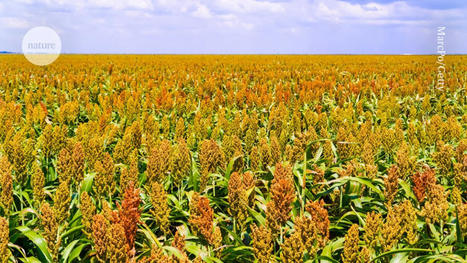


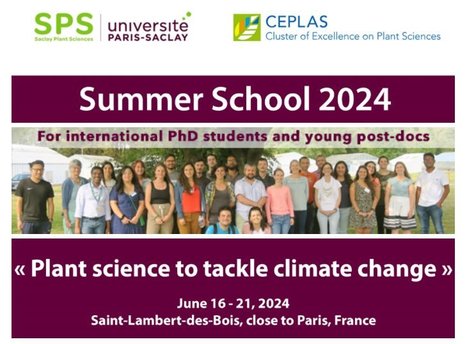

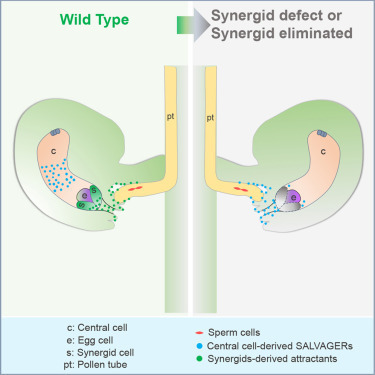
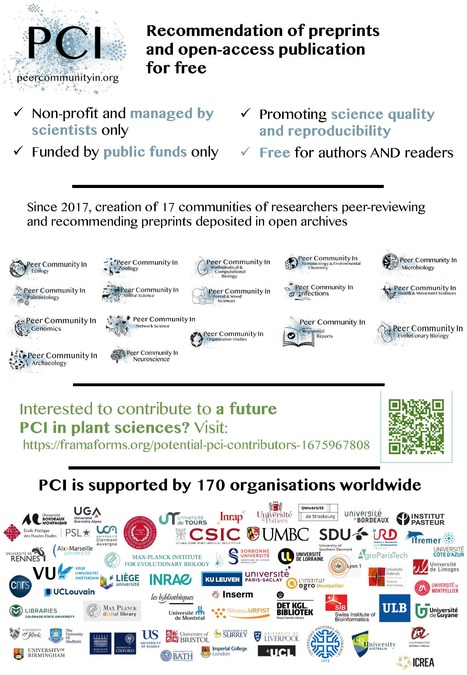

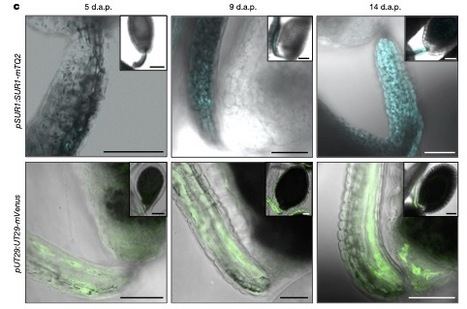
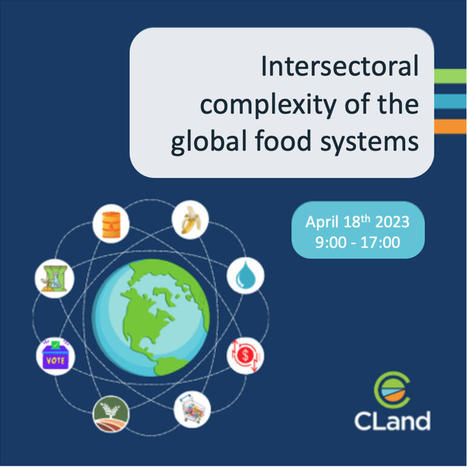
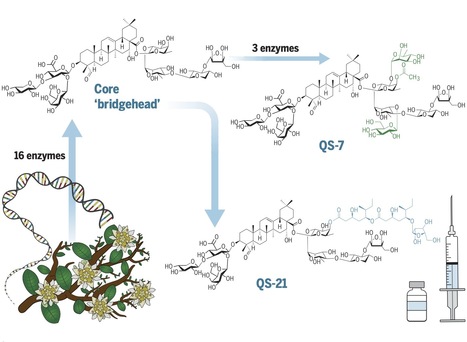
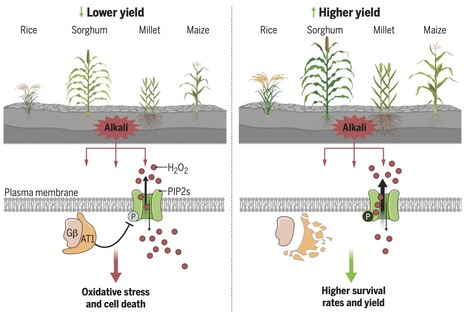
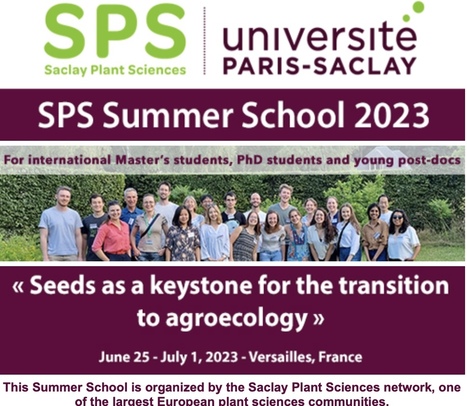
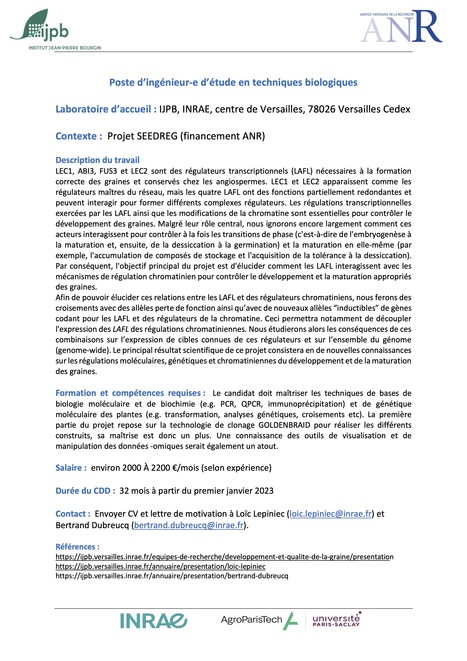





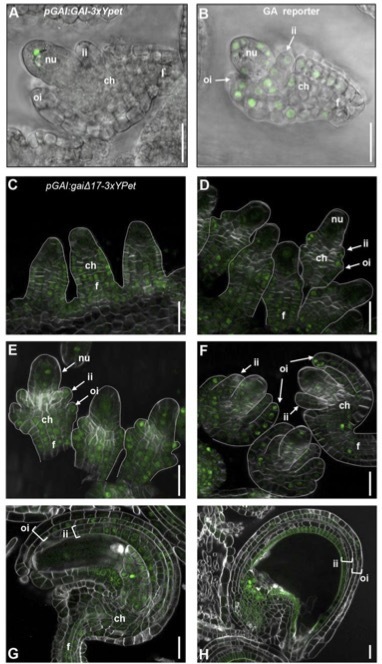
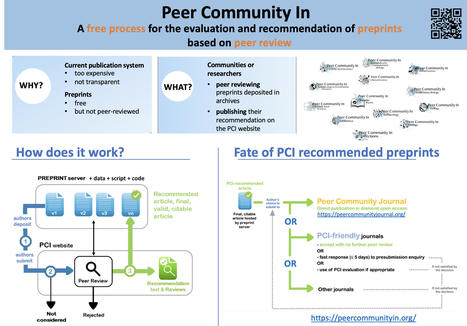
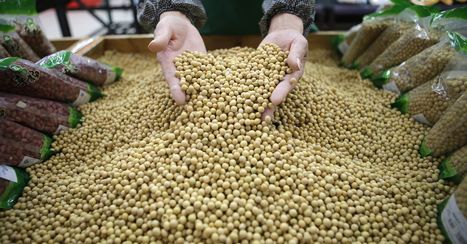

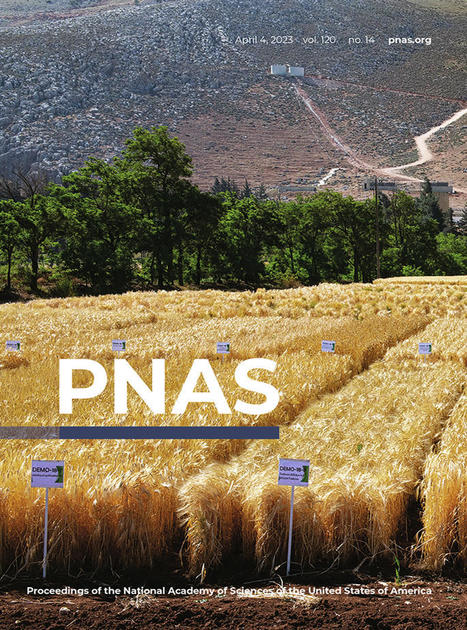
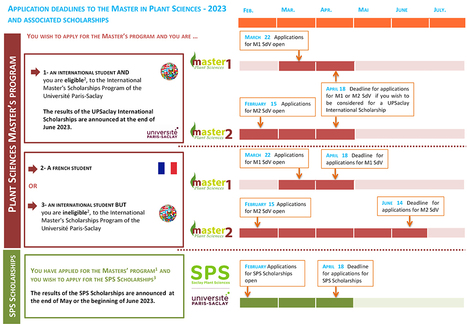






Researchers have generated a platform that uses combinatorial genetics en masse (CombiGEM) and the CRISPR–Cas9 system for the rapid assembly of barcoded combinatorial genetic libraries that can be tracked with high-throughput sequencing.